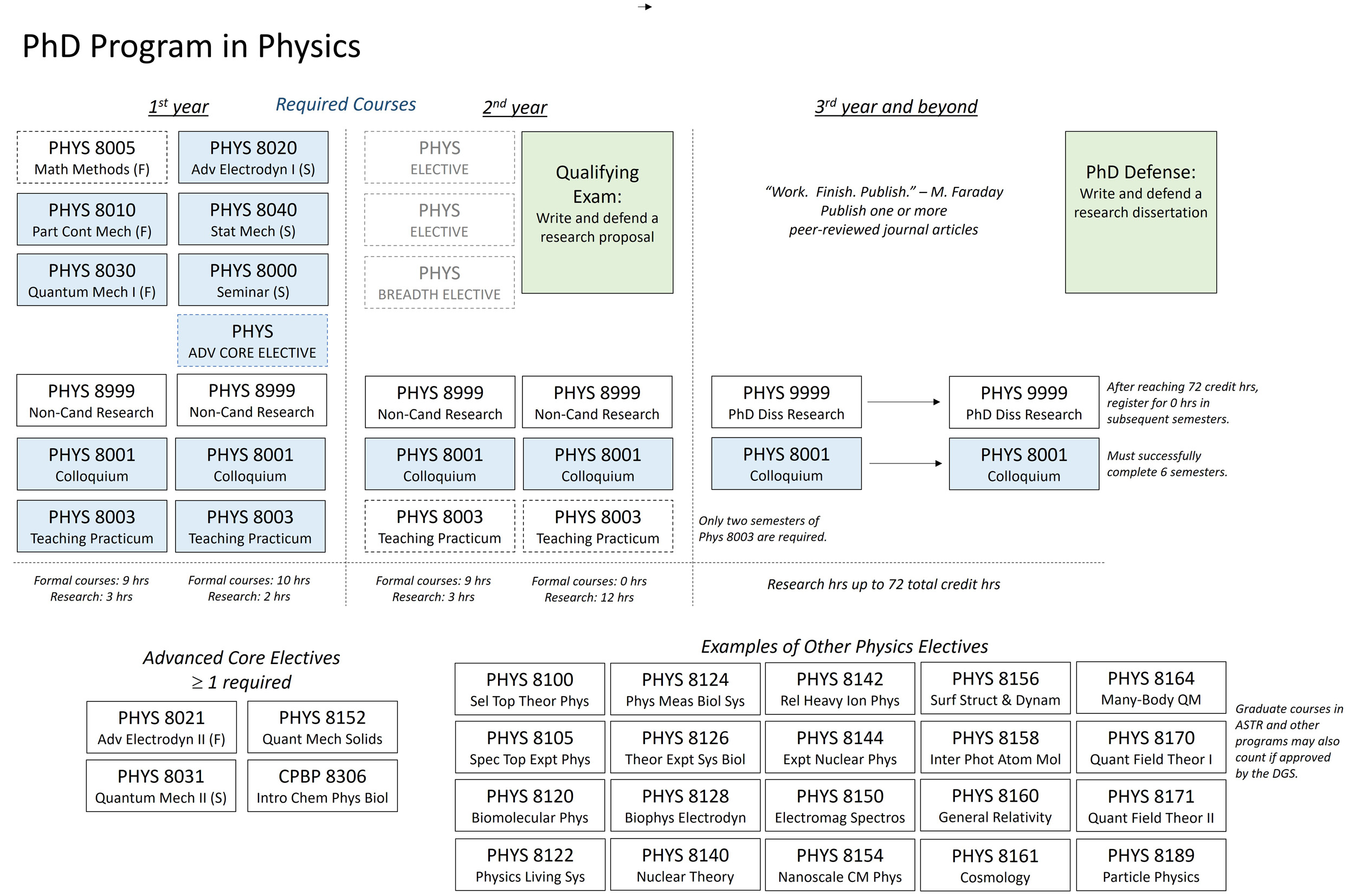

To earn a physics Ph.D., students must complete 28 credit hours of formal coursework, pass a proposal-based qualifying exam in their second year, and successfully write and defend a dissertation presenting their original scientific research. The Graduate School requires 72 total credit hours, which includes the program-required 28 credit hours of courses plus registered research hours. The complete physics Ph.D. regulations are set forth in the departmental Ph.D. Requirements Guide and subject to all rules and regulations imposed by the Graduate School.
Completion of the Ph.D. requires:
See the requirements guide for full details.
A typical timeline of coursework, Qualifying Exam, and Ph.D. defense is shown below.

Download PDF version here.
The Department of Physics & Astronomy does not admit students seeking a terminal master’s degree, but one can be earned en route to the Ph.D.
Non-Thesis Option (for Ph.D. candidates who desire to earn a master’s degree en route)
Thesis Option (an alternative for students who decide not to complete the Ph.D. program)
The degree requires one academic year or its equivalent of residence at Vanderbilt University.
© Vanderbilt University · All rights reserved. Site Development: Digital Strategies (Division of Communications)
Vanderbilt University is committed to the principle of equal opportunity. Vanderbilt University does not discriminate against individuals on the basis of their race, sex, sexual orientation, gender identity, religion, color, national or ethnic origin, age, disability, military service, or genetic information in its administration of educational policies, programs, or activities; admissions policies; scholarship and loan programs; athletic or other University-administered programs; or employment.
Accessibility information.
Vanderbilt®, Vanderbilt University® and the Vanderbilt logos are trademarks of The Vanderbilt University.